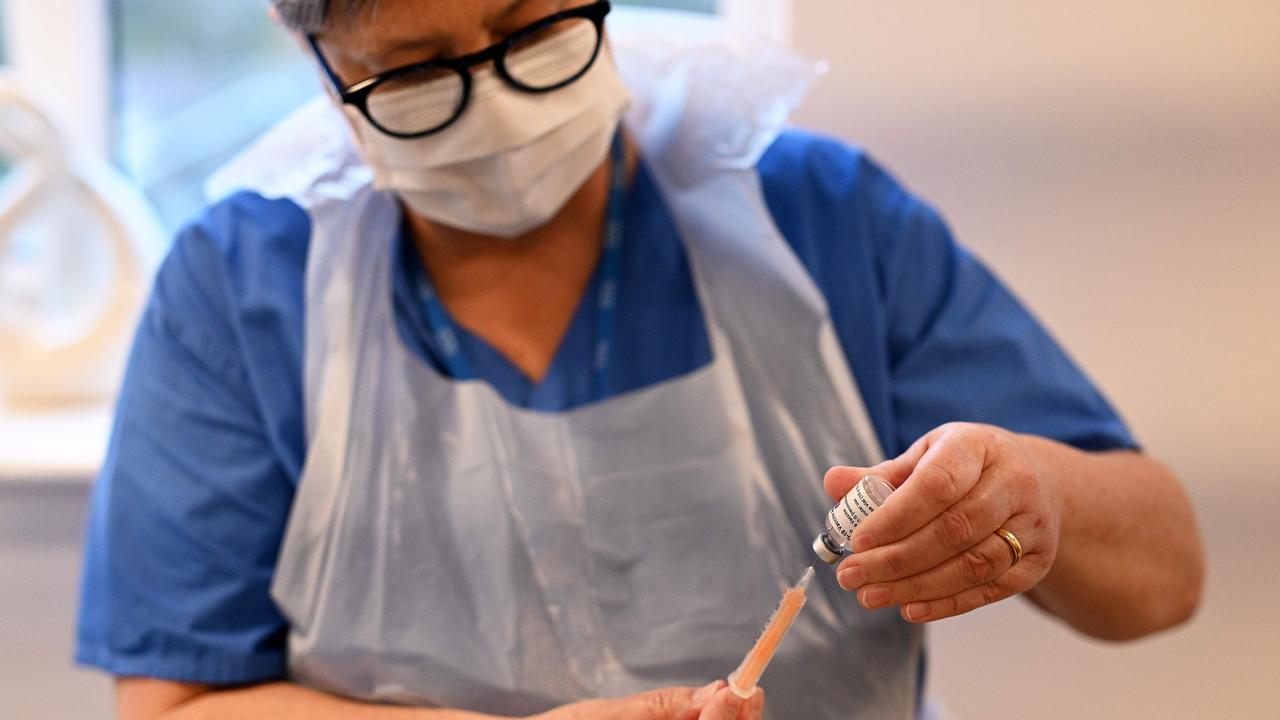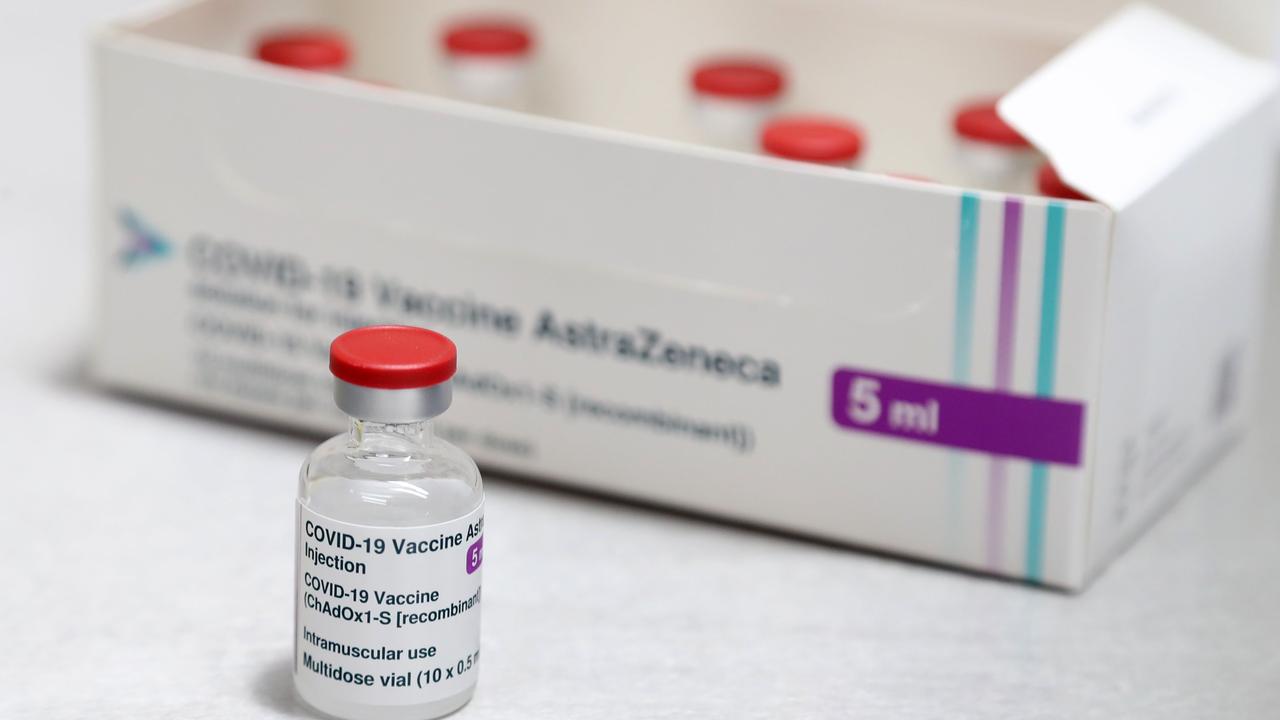What we don’t know about the coronavirus vaccines and how they work
Two vaccines have been rolled out in Australia but there is one major concern Australians have before getting the jab.
The vaccines against COVID-19 have been developed in record time and there are still many things experts don’t yet understand about them.
Vaccinating against coronavirus is the easiest way for Australians to get their normal lives back, but millions are hesitant to get the jab.
Our Best Shot is news.com.au’s campaign answering your questions about the COVID-19 vaccine roll out.
We’ll debunk myths about vaccines, answer your concerns about the jab and tell you when you can get the COVID-19 vaccine.
With two vaccines set to be rolled out in Australia, here is everything we know and don’t know about them.
WHAT WE DO KNOW: THEY ARE SAFE
While there are many unknowns, people can be assured of one thing: the vaccines are safe.
“Where shortcuts have been taken, they are not in terms of monitoring safety,” Professor of immunology at RMIT University, Magdalena Plebanski told news.com.au.
“There’s just been a huge amount of scrutiny.”
All the vaccines have been through Phase III trials that each saw between 20,000 and 40,000 people given the jab and monitored for health issues.
While this does not pick up rare side effects (those occurring in less than 1 in 10,000 people) it does exclude uncommon side effects. However, this is not any different for other new vaccines that are developed.
“The eyes of the world are on this and that means shortcuts on safety cannot be taken, which is great,” Prof Plebanski said.
“Everything’s been transparent so I wouldn’t be worried personally on the safety.”
Professor Allen Cheng, who leads the government’s Australian Technical Advisory Group on Immunisation, told news.com.au’s Samantha Maiden in January that no major side effects had been found despite the vaccines being rolled out to millions around the world.
“Obviously millions of people now have got it in the US and Europe and other countries and we’re not finding anything majorly unexpected,” he said.
He noted that severe allergic reactions from those getting the Pfizer vaccine had been observed in 1 in 100,000 people, which is why those with severe allergies have been advised to not to get the vaccine if possible, but that means 99,000 people hadn’t had serious side effects.
So far there have been 19 cases of anaphylaxis in Australia from 183,000 doses of COVID-19 vaccine administered, 14 happened after the person got the Pfizer vaccine and five were in people who got the AstraZeneca vaccine.
The Therapeutic Goods Administration (TGA) is monitoring this and will also look at whether these rates are unusual.
TGA head Professor John Skerritt said any vaccine could cause an anaphylactic reaction in a small number of people.
“We certainly don’t believe there is any specific problem around AstraZeneca (and) Pfizer COVID vaccines. These are rare events that do happen in patients,” he told reporters on Wednesday.
Concerns have also been raised about the AstraZeneca vaccine and a possible link to blood clots but the TGA said there was no evidence the clots were linked to the vaccine.
Prime Minister Scott Morrison has also noted that Australia is one of the few countries in the world to give the Pfizer vaccine “formal approval” and not just an emergency approval.
“We are one of only a handful of countries to have gone through such a comprehensive and thorough level of oversight to ensure the vaccines are safe,” he told the National Press Club of Australia on February 1.
SO WHAT ARE THE SHORTCUTS?
Where shortcuts were taken, Prof Plebanski said, this was more around optimising the immune response to the vaccine.
Scientists would normally have more time to test the effectiveness of different dosages and work out how much vaccine gets the best immune response, and how far apart the doses should be.

“Because everything is so accelerated, a lot of studies that would have been done in terms of making the vaccine work optimally are being done now, rather than before it was given to a lot of people,” Prof Plebanski said.
“More studies could have been done with different doses and different gaps between doses.”
For example, authorities are now recommending the two doses of the AstraZeneca vaccine be given 12 weeks apart after it was found during trials that this produced the best immune response.
Prof Cheng said the quick development of the vaccines was due to the different phases being done at the same time instead of one after the other. Normally scientists also have to wait for funding to be approved and regulators usually take around 255 business days to consider the results of Phase III trials. Instead, priority has been given to COVID vaccines so this is done as soon as possible.
There is also a lot of funding that is being put on the line in the race for a cure.
“You would never think in a million years … that we would make vaccines before we knew that they were effective,” Prof Cheng said.
However, this is being done for COVID vaccines so they can be ready for shipping as soon as they are found to be safe and effective.
Australia is also in a fortunate position when it comes to these unknowns as the mass rollout of vaccines overseas mean that rare events, such as the possibility of an allergic reaction, will likely be picked up before Australians get the vaccine.
“We are in such a luxurious position as we will see what happens in the rest of the world,” Prof Plebanski said.
“It’s an amazing position to see that and the safety of it, so we can be confident in the vaccination.”
CAN WE TAKE TWO VACCINES?
This is another question that scientists don’t have the answer to: whether it is safe to take two different vaccines.
When it comes to the two doses each vaccine requires, authorities don’t recommend mixing and matching. If your first injection is for the Pfizer vaccine for example, you must also get a second dose of Pfizer, not AstraZeneca.
However, there are now trials being undertaken to look at whether it’s safe to mix vaccines.
Once people complete the two shots for a vaccine, it’s also not clear whether they can change to a different vaccine if they need a booster next year for example.

HOW LONG DOES IMMUNITY LAST FOR?
It’s still unclear how long people who get vaccinated or who have recovered COVID-19, will remain immune from the disease.
However, there are some promising signs.
A British study found those who have already had COVID-19 and recovered appear to be immune for at least five months, while a study published in January found those who got the Moderna vaccine still showed good immune responses four months after getting the jab.
“The vaccines have only been around for a number of months so we know that they work for at least how long people have been followed up with a call, which is generally not that long,” Prof Cheng said.
This could have implications for our chances of achieving herd immunity.
But only time will tell.
DO VACCINES STOP TRANSMISSION?
The available vaccines are very effective at stopping people from getting severely ill or dying but it’s still unclear how good they are at stopping people from spreading the disease.
The available vaccines work by teaching the body how to recognise and fight off the disease but it’s unclear how quickly this response works and whether it will stop the virus multiplying in the nose (where it first enters) and being sneezed out.
It’s possible some vaccinated people could be infected with the coronavirus but not have symptoms and then pass the virus on to others.
It’s unclear at the moment if this is the case but if this is proven, it could have implications for achieving herd immunity.
This is one reason that people are being advised to continue social distancing and wearing masks even if they have been vaccinated.
However, other types of vaccines may prove effective at stopping transmission in the future.
IS HERD IMMUNITY ACHIEVABLE?
If enough of the population is vaccinated, “herd immunity” can be achieved because the virus won’t be able spread in the population as the people you come into contact with are likely to be immune.
“At this stage we really just don’t have enough information to say how much (of the population needs to be vaccinated for) that might occur,” Prof Cheng said.
It does look like the AstraZeneca vaccine, which the majority of Australians is likely to receive, is extremely effective at protecting against severe disease but it may not be as good at protecting against infection.
“But we just don’t know that for sure at this stage,” Prof Cheng said.
Authorities may soon get some idea about how effective vaccination is at preventing transmission, for the Pfizer vaccine at least, as results begin to emerge from Israel’s fast-tracked vaccination program.
But Prof Cheng warned that vaccinating the whole population was going to take a bit of time, and there was also no vaccine available for children yet.
“So we have at least, you know, 20 per cent of the population that can’t get vaccinated, because (of) the children,” he said.
There will also be around 10 to 20 per cent of the population who don’t want to be vaccinated.
“If half the population is vaccinated and they don’t get sick and die then that changes things immediately,” Prof Cheng said.
“But we’ll need to wait a bit longer to know fine details about mask wearing, what we’ll do during an outbreak and hotel quarantine arrangements.”
SHOULD PREGNANT WOMEN GET THE VACCINE?
The Royal Australian and New Zealand College of Obstetricians and Gynaecologists (RANZCOG) has not recommended the routine use of COVID-19 vaccines for women who are pregnant because not enough information is available about safety impacts, although there’s no evidence of any harm.
“Based on known data from other similar vaccines, it is unlikely that COVID-19 vaccines pose a risk to a pregnant woman or her foetus,” a RANZCOG statement said.
“However, as pregnant and breastfeeding women have not been included in initial trials, data are very limited and our current knowledge is based on inadvertently exposed patients and the impact of the disease in an unvaccinated population.”
Prof Cheng has advised women to speak to their doctor about the potential risk or benefits of getting vaccinated.




